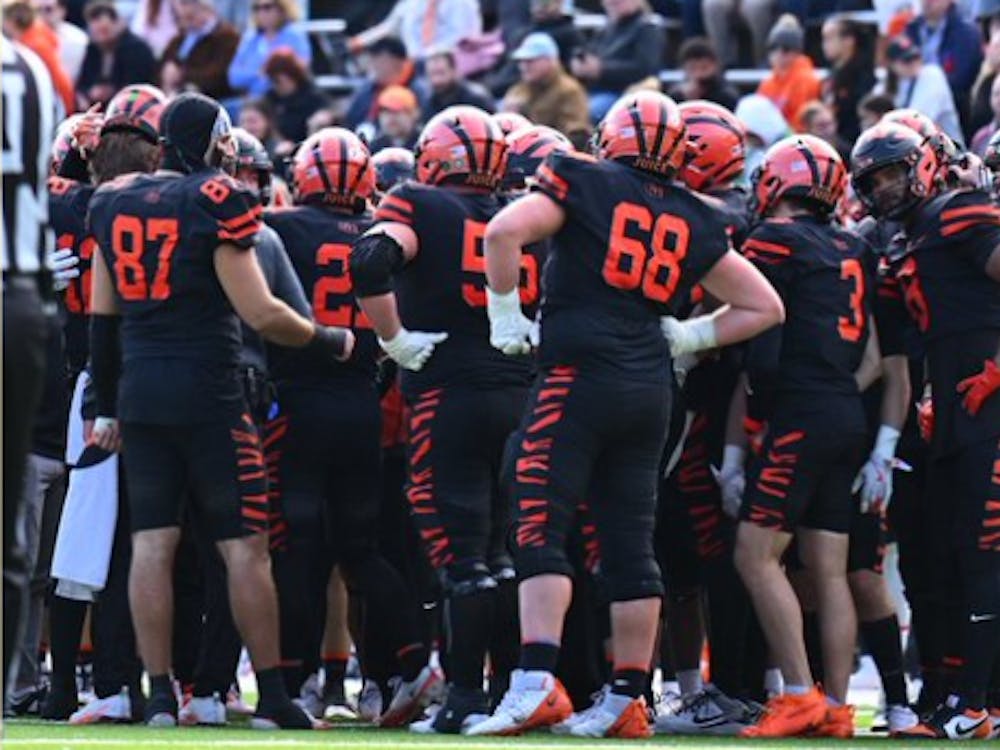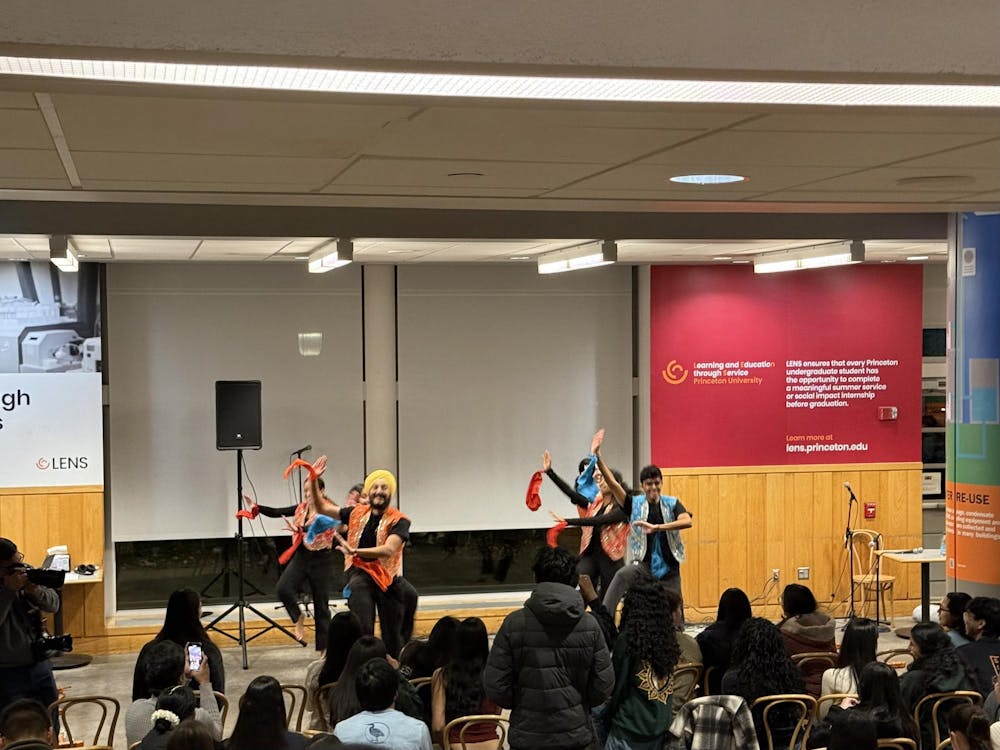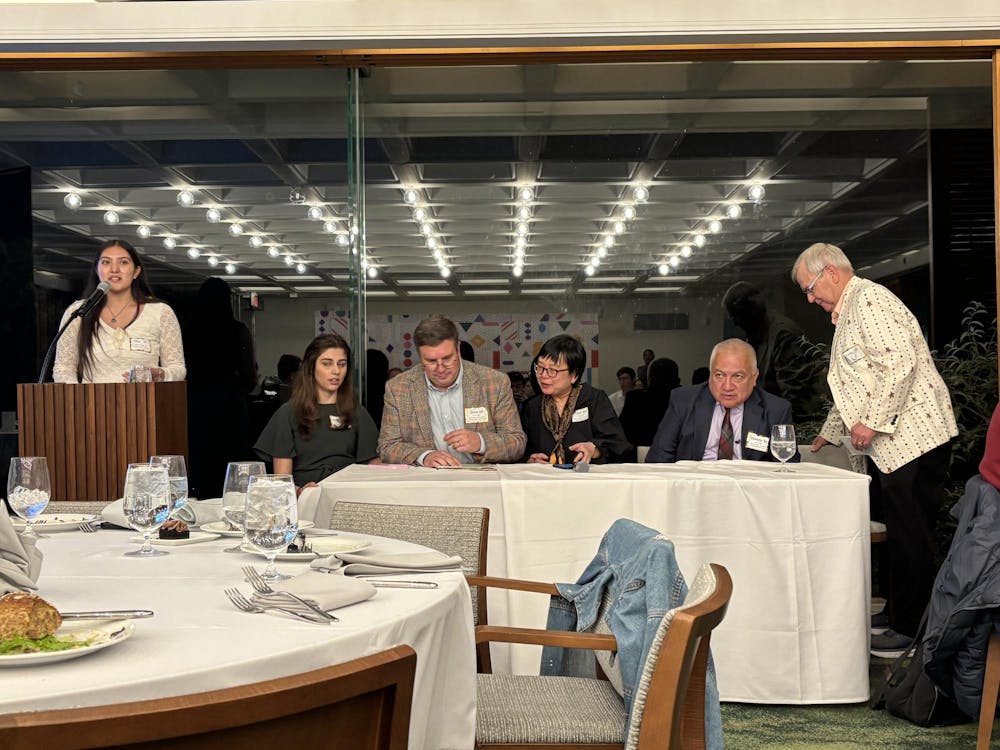After Elizabeth Tsurkov, a graduate student in the Politics department, was kidnapped in March while conducting dissertation research in Baghdad, the University's processes for travel approval have been under the spotlight. In interviews with the Daily Princetonian, two graduate students discussed a culture where graduate students are primarily responsible for considering safety regarding travel plans related to research. The University responded by noting numerous resources graduate students can use to assess the safety of their travel, along with processes as a part of official travel approval.
According to her sister, Emma Tsurkov, Elizabeth Tsurkov’s research prospectus was approved by her dissertation committee, which was chaired by Amaney Jamal, Dean of the School of Public and International Affairs (SPIA). The prospectus mentions travel to Iraq as part of Tsurkov’s research. University spokesperson Michael Hotchkiss had previously told The Daily Princetonian that the prospectus approval process is distinct from that of approving travel plans.
Sophie Brady, a graduate student in the Department of Music who conducted dissertation research in France, Senegal, and Guinea between 2021 and 2022, told the ‘Prince’ that “the University’s travel approval process is almost certainly separate from prospectus approval.”
Brady, said that much of the onus of ensuring travel safety fell on students and their advisors. Brady arrived in Guinea nine months after a coup d’etat had occurred in the country, but she said in the process of getting her travel approved, “90 percent of the conversation was about COVID safety.”
“I submitted a proposal in fall of 2020, right in the midst of COVID, and they approved it, and I almost wonder if maybe there was less concern about whether or not it’s actually feasible given the political situation,” she said.
Brady added that she “was probably the most concerned about it than anyone else.”
“I think the attitude is, you’re an adult. We’re no longer liable for you in the way that we are for undergraduates, so long as you feel comfortable doing it,” Brady shared. She said she was told to look at the State Department website’s travel advisories for Senegal and Guinea.
Brady said that her fellowship was external, meaning she was not being funded by the University, which she speculated may have “decreased their liability.” She noted that her external grant applications included more detail about her proposed travel than did her prospectus submitted to the University, which she said is typical in the music department.
Brady said she also received help in determining the feasibility of her travel from her adviser, Gavin Steingo.
According to Brady, Steingo “went above and beyond to try to help me, but not every adviser is equipped to do that, I don’t think they get really any training, and I wonder if there are other ways the University can support advisers and also students to make that process easier.”
Megan Kang, a fourth-year graduate student in the Department of Sociology who is currently conducting research on gun violence in Chicago, told the 'Prince' that "the weight of fieldworker safety and well-being falls on individual students, advisors, and sometimes, departments."
"This sort of decentralization isn’t intrinsically problematic, especially since it allows for more flexibility which is important given the diverse range of fieldwork experiences, goals, and issues. However, allowing fieldworkers to continue to have flexibility in their work and not introducing red tape while also providing them with a source of external support for potential safety issues seems like a reasonable ask of the University," she said.

“The needs of fieldworkers may be hard to anticipate upfront — as is inherent in the fieldwork enterprise — but could possibly include personal safety concerns while in the field, financial support for safe travel and living, and legal support for questions that can arise when researching at-risk subjects. All of these would have been helpful for my research,” Kang added.
In a written statement, Hotchkiss told the ‘Prince’ that graduate students who want to conduct research abroad “are expected to engage as early as possible with their advisers and other University departments with requirements and processes for international travel and research.”
He pointed to the Graduate School, Research Integrity and Assurance, Global Financial Services, Export Controls, and Global Safety & Security as relevant departments.
“It is also important for graduate students to check with their home government embassies, consulates, or other institutions to be sure they are aware of any specific risks and legal requirements (ie. visa requirements) for their chosen destination,” he added.
Hotchkiss also said that University Health Services offers consultations about health concerns while abroad, while Global Safety & Security (GS&S) is available for trip planning consultation.
Referring to GS&S Hotchkiss said it “can provide tailored information and risk mitigation advice for a particular traveler’s destination, traveler profile, and activities.” He added that the University’s Enroll My Trip system also “directs students to travel resources, which includes risk resources, pre-departure consulting, and emergency support while abroad.”
An additional point of concern for Brady is the perceived pressure on students to conduct research in unsafe countries: “It’s a higher risk, but then there’s potentially a higher reward,” she said, adding that, “I think that’s part of why students are encouraged to do this.”
Brady told the ‘Prince,’ “If you go to lengths that other people aren’t willing to go to, you find things that other people haven’t found, and you have an advantage when it comes to writing a really great dissertation.”
Brady referenced Xiyue Wang, a Princeton graduate student who was held in Iran for 40 months from 2017-2019, as an example. Wang filed suit against the University in November 2021, claiming that he suffered “severe personal injuries and other irreparable harm” due to the University’s “reckless, willful, wanton, and grossly negligent acts.” The lawsuit was settled out of court this August, following mediation. According to court documents, Wang alleged that “Princeton urged, advised, and directed him to go to Iran to do research.”
Hotchkiss told the ‘Prince’ that graduate students have the freedom to select their research areas, and to alert the Graduate School if they feel “they are being pressured to conduct research in a location they would rather not travel to.”
He added that “the University denied and continues to deny the allegations in Mr. Wang’s lawsuit.”
Hotchkiss also provided a list of emergency funds graduate students involved in University Travel abroad can use. These include the University Safety-Net Fund, the Aryeh Stein-Azen Memorial Fund, the Special Needs Fund, and the Medical Expense Assistance Program. “Whether these funds can be used to cover specific expenses is determined on a case by case basis, and depends on the totality of the circumstances at issue,” Hotchkiss said.
Hotchkiss added that when graduate students are in the field, they should call International SOS for medical emergencies and crisis response.
“International SOS is the University’s international medical and security assistance provider. Graduate students have international insurance coverage when traveling on Princeton University Travel (as defined in the Permitted Travel Policy), and services can be coordinated through International SOS.” International SOS also contacts students if any major incident occurs near a traveler’s destination.
Olivia Sanchez is a staff News writer for the ‘Prince.’
Please send any corrections to corrections[at]dailyprincetonian.com.
Correction: This story previously misstated the month of Elizabeth Tsurkov's kidnapping and her department. The ‘Prince’ regrets these errors.








